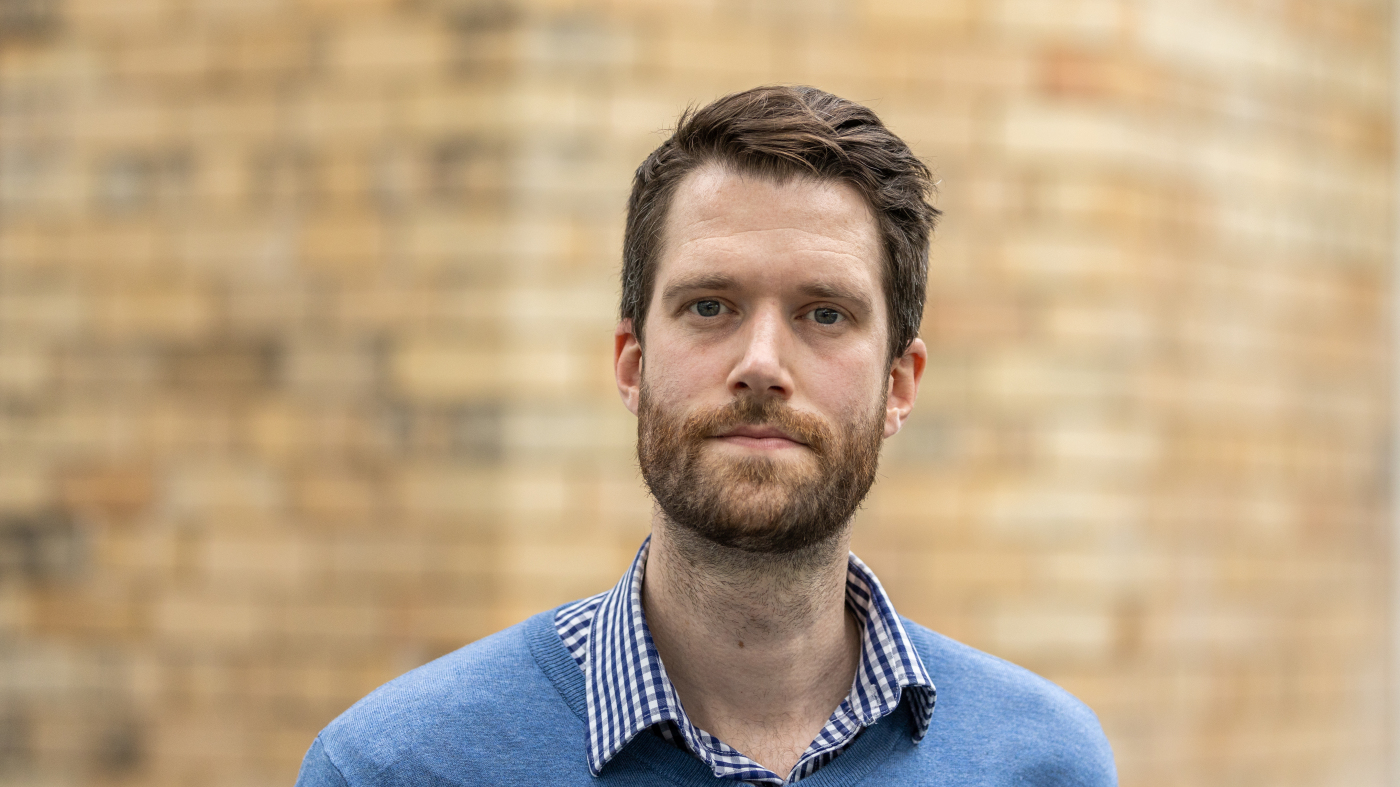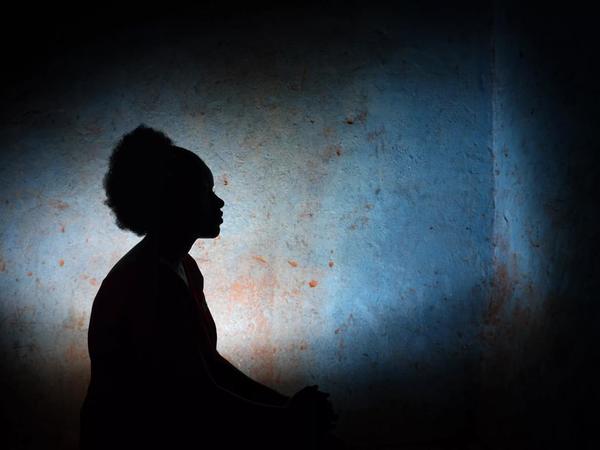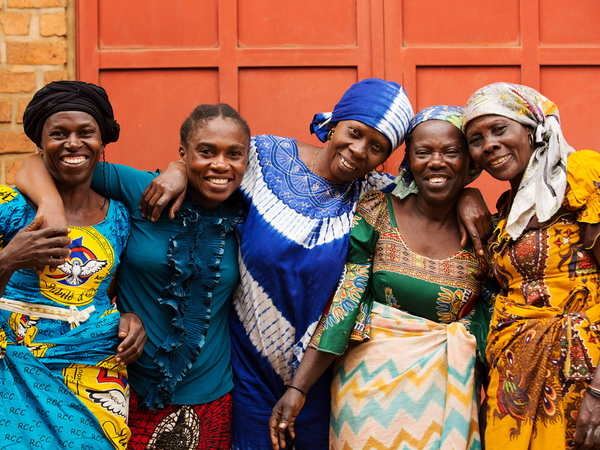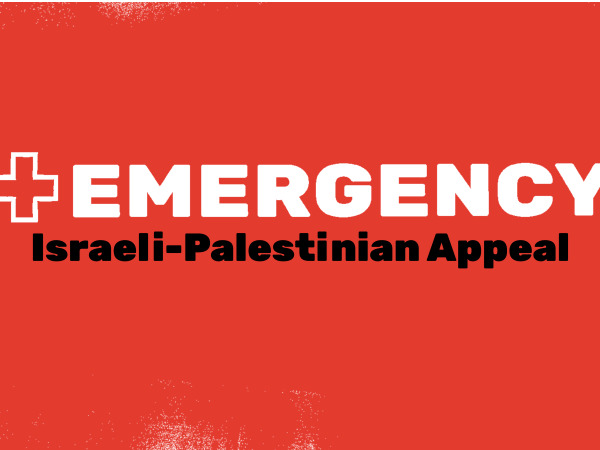Two tragedies, 30 years apart
6 March 2024

Ben Wilson is the SCIAF Director of Public Engagement, and writes for Open House on our Lenten and Emergencies Appeals.
This year for SCIAF, the season of Lent is dominated not by one, but two campaigns.
Our main Lenten appeal focuses on Rwanda, marking 30 years since the genocide there. SCIAF works in Rwanda with local church agencies and communities who are still scarred by the impacts of that conflict, helping communities build better livelihoods for themselves and their families. Our particular focus is on the work we do with the Rwandan Justice and Peace Commission to support women and girls recovering from sexual violence, helping them heal and build new lives.
Yet whilst we are taking this appeal for Rwanda out across the country to our supporters, schools and parishes, the very current situation in Gaza is never far from anyone’s mind. Thousands of children have already lost their lives there since October 7th, and many more have had their lives torn apart. SCIAF has received very generous donations from our supporters of around £100k already for the people of Gaza, which is currently being spent by Caritas Jerusalem and other local partners on urgent humanitarian relief including food and healthcare. However, the reality is that it is incredibly difficult for our partners on the ground to spend the aid.
The level of aid entering Gaza is significantly less than it was before October 7th. Our partner staff are working hard every day to serve those in need, while trying to keep themselves and their families alive, fed and warm. As such, SCIAF has focused on raising our voice politically at this time of need. It is only with a robust ceasefire that aid in any decent quantity can get in, and that efforts to build a strong and lasting peace can begin to grow from the smallest kernels of hope.
In some ways, what happened in Rwanda 30 years ago feels fundamentally different to what is happening today in Gaza. But in other ways, these two conflicts are deeply intertwined. Both conflicts reflect the same tragic human propensity for violence. Both show what can happen when hatred is allowed to fester and become entrenched. Both can be shown to have their roots in a colonial hegemony which has dominated human history yet is incompatible with the conditions of universal human flourishing.
Rwandan Genocide
In 1994 in Rwanda, over a span of just 100 days, an estimated 800,000 people, predominantly from the Tutsi ethnic group, were brutally massacred by extremist Hutu militias. Since the late 19th century, Rwanda had endured European colonisation, first by Germany and then Belgium after the First World War. The Belgian authorities used historical myth making and contemporary eugenics to regard the Tutsi minority as ethnically superior, and hence the natural leaders of the majority Hutu population.
The story of Noah’s son’s and the so-called “Curse of Ham” was used by the authorities to justify the subjugation of the Hutus, who traced the Tutsis back to “superior” origins and the Hutus to the accursed Ham. Rwanda gained independence from Belgium in 1962, and political power shifted from the Tutsi elite to the Hutu majority. However, ethnic tensions persisted, exacerbated by discriminatory policies that marginalized Tutsis. The seeds of hatred were sown, and the stage was set for a tragic confrontation.
The assassination of President Juvénal Habyarimana, a Hutu, on April 6, 1994, served as the catalyst for the genocide. Though the perpetrators remain unknown, extremists within the Hutu government used the incident as a pretext to initiate a meticulously planned campaign of mass extermination against the Tutsis.
Almost immediately after the assassination, roadblocks were erected, and lists of Tutsi individuals and sympathisers were distributed. The Interahamwe, an extremist Hutu militia, along with the military and ordinary citizens, embarked on a bloodthirsty rampage. Machetes, firearms, and other crude weapons were used to carry out the killings. Rape and torture were widespread, and entire families were wiped out.
The international community's response to the genocide in Rwanda remains a subject of intense scrutiny and regret. Despite mounting evidence of the atrocities, the United Nations failed to intervene effectively. The UN peacekeeping mission, UNAMIR, led by Canadian General Roméo Dallaire, was ill-equipped and lacked the mandate to stop the violence. The global community's reluctance to label the events as genocide further hindered timely intervention.
By the time the genocide ended in July 1994, the death toll was staggering, and the scars on Rwanda's social fabric were deep. The country was left traumatised, with thousands of orphans and widows grappling with the aftermath of unimaginable loss. The task of rebuilding a shattered nation, both physically and emotionally, seemed insurmountable.
In the subsequent years, Rwanda has been on a remarkable journey of reconciliation and healing. SCIAF has been supporting this journey for decades through our local partners in the Rwandan Justice & Peace Commission. This work has taken many forms over the years, including the supporting of peace and reconciliation initiatives, the rehabilitation of perpetrators into communities, as well as the pursuit of justice for victims, and extensive livelihoods activities which help mend some of the long-term effects of the violence.
The focus this year for SCIAF has been our work on violence against women and girls. Sexual violence was a weapon of war in Rwanda and continues to be widespread across the country. Together with CEJP Rwanda, we’re working to provide essential support to survivors, and put an end to sexual violence. We’re providing medical care, trauma counselling and skills training, so survivors can recover, support themselves and rebuild their lives. We’re working to change attitudes, so women and girls can be safe, respected and valued, and developing networks of community leaders who speak out against violence and demand gender equality.
Gaza
As we witness the diabolical violence now being unleashed in the Holy Land, knowing the decades of discrimination and apartheid the Palestinians have suffered and the suffering of the Jewish people that inspired the creation of the state of Israel, we must remember the horrors of violence create scars that stretch far into the future. The reality that Rwandans still live in today should be a warning sign, and the international community must learn the lessons of the past. In Rwanda, like in the Holy Land, historical myths were used to justify contemporary violence, and the stoking of tensions by leaders on both sides for their own political gains caused the simmering tensions to bubble up over the surface into unspeakable horrors.
Just as the Rwandan genocide had its origins in a particular historical context, the situation in Gaza now can similarly be understood. In his account of the dehumanising effects of colonisation, The Wretched of the Earth, Franz Fanon writes that “Imperialism leaves behind germs of rot which we must clinically detect and remove from our land but from our minds as well”, and that “For a colonized people, the most essential value, because the most concrete, is first and foremost the land: the land which will bring them bread and, above all, dignity."
Both the people of the Holy Land and the people of Rwanda have colonialists to thank for the violence that now pervades their daily experiences. The colonial logic which carves up communities, builds walls instead of bridges in the pursuit of power or wealth, floods into every corner of a colonised society. Violence begets violence, hate begets hate, sin thrives and people are torn apart. When this is allowed to fester, the most utterly diabolical consequences can thrive.
However, the story of Rwanda is ultimately one of healing and recovery. Rwanda and her people are still on that journey, but there is hope and a light at the end of the tunnel. We must continue to pray and cry out for peace in the Holy Land now, as quickly as possible, so that the people of Gaza and Israel may know peace one day in their lifetimes. Just as it has done in Rwanda, SCIAF and the whole church must be ready to stand side-by-side with those people on their journey towards justice and peace.

Violence against women is preventable. This Lent, please give generously and use your WEE BOX to make a BIG CHANGE.

SCIAF is working in many of the world’s poorest countries to tackle both the causes and consequences of gender inequality.

We have launched an emergency appeal for the crisis in the Holy Land.